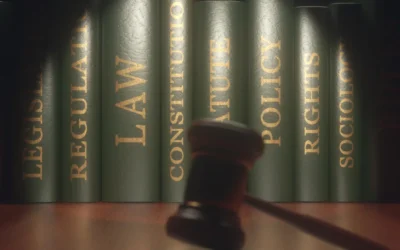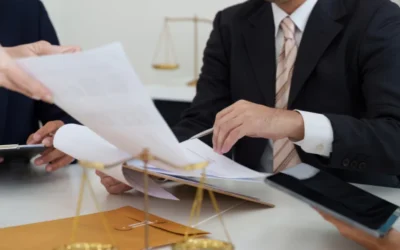Introduction
Personal injury law is a branch of the legal system that allows individuals to seek compensation when they’ve been harmed due to someone else’s negligence or intentional actions. It’s designed to ensure that those who suffer injuries—physically, emotionally, or financially—can recover damages and hold responsible parties accountable.
Understanding personal injury law is essential because accidents and injuries can happen to anyone at any time. Whether it’s a car crash, a workplace incident, or a slip and fall, knowing your rights and options can make all the difference in how you recover and rebuild your life after an unexpected event.
This blog will break down what personal injury law entails, how it works, and why it matters. We aim to keep things clear and straightforward so that anyone, regardless of their legal background, can grasp the key concepts. As you read, you’ll gain insights into the basics of personal injury law and its real-world applications. Links to more in-depth discussions on specific topics will be added later for those who want to dive deeper.
What is Personal Injury Law?
Definition in Simple Terms
At its core, personal injury law is about fairness and accountability. It ensures that individuals who suffer harm due to someone else’s carelessness or intentional actions have a way to seek justice. Whether it’s a car accident, a hazardous condition at work, or a faulty product, personal injury law provides a framework for the injured to recover compensation for their losses.
Here’s a simple breakdown:
- Focus: Protecting individuals who have been harmed due to negligence or intentional actions.
- Purpose: Offering a legal pathway to recover damages for physical, emotional, or financial harm.
- Goal: Ensuring fairness and accountability when injuries disrupt someone’s life.
Think of it this way: if someone’s actions—or lack of proper care—cause you harm, personal injury law is there to help level the playing field. This area of the law focuses on protecting people, not corporations or entities, and emphasizes the idea that negligence should never go unchecked.
The Scope of Personal Injury Law
Personal injury law spans a wide array of situations where harm can occur. From car crashes and medical mistakes to defective products and unsafe premises, this area of the law covers incidents where negligence results in injuries.
Examples of common scenarios include:
- Car accidents: When drivers fail to follow the rules of the road or drive recklessly.
- Medical errors: Cases where improper care or misdiagnosis leads to harm.
- Defective products: Injuries caused by unsafe or malfunctioning consumer goods.
- Slip and fall incidents: Accidents resulting from hazardous conditions on a property.
- Workplace injuries: Harm caused by unsafe working environments or negligence.
- Wrongful death: Cases where negligence tragically results in the loss of life.
While many types of personal injury claims fall under this broad umbrella, each case is unique. The specific circumstances—how the injury happened, who was responsible, and the extent of the harm—determine the legal outcome.
The Importance of Knowing Your Rights
Understanding personal injury law isn’t just for those who have already been injured; it’s knowledge that can empower everyone. Knowing your rights ensures you’re prepared to make informed decisions if you ever find yourself in an unexpected situation.
Key points to consider:
- Varied Laws by State:
- Your rights and compensation can differ depending on where you live.
- Some states limit how much you can recover or have stricter deadlines for filing claims.
- Avoiding Common Misconceptions:
- Not all injuries automatically lead to legal claims.
- Understanding what qualifies as negligence can prevent missed opportunities for justice.
- Informed Decisions Post-Injury:
- Knowing what to do after an injury can help preserve evidence and strengthen your case.
- Seeking guidance early can prevent settling for less than you deserve.
Personal injury law serves as a reminder that everyone deserves justice and fair treatment, no matter their circumstances. It’s not just about the legal process—it’s about giving individuals the tools they need to move forward after an unexpected setback.

How Does Personal Injury Law Work?
Key Elements in a Personal Injury Case
Personal injury law revolves around a few key concepts that determine whether a claim is valid. These elements form the foundation of any case and help establish liability:
- Duty of Care:
- This refers to the responsibility one party has to act in a way that avoids causing harm to others.
- Example: Drivers have a duty to obey traffic laws and drive safely to prevent accidents.
- Breach of Duty:
- When someone fails to meet their duty of care, they are considered to have breached it.
- Example: A store owner who doesn’t fix a known hazard, like a wet floor without a warning sign, breaches their duty of care.
- Causation:
- There must be a direct link between the breach of duty and the injury suffered.
- Example: If a distracted driver runs a red light and hits another car, their negligence directly causes the accident.
- Damages:
- The injured party must demonstrate that they suffered actual harm, such as physical injuries, emotional distress, or financial loss.
- Example: Medical bills, lost wages, and pain and suffering are common damages claimed in personal injury cases.
These elements work together to establish the validity of a personal injury claim and the basis for seeking compensation.
The Legal Process
The legal process for personal injury claims can vary, but it typically follows a general path. Understanding these steps can help set expectations:
1. Understand the Basics of Personal Injury Claims
Start by identifying whether your situation qualifies as a personal injury case. This involves proving that someone else’s negligence caused you harm—physically, emotionally, or financially—and that you suffered measurable damages.
2. Seek Immediate Medical Attention
Your health comes first. Medical records serve as vital evidence in your case. Get treated, keep all documentation, and track how the injury impacts your life to strengthen your claim.
3. Consult a Personal Injury Attorney
Legal guidance is essential. A qualified attorney can assess your case, explain your rights, handle communications, and maximize your chances of a fair outcome.
4. File the Claim
Your attorney will file a formal claim with the at-fault party’s insurer and possibly the court. This includes a demand letter, evidence submission, and awareness of key filing deadlines based on state laws.
5. Investigate and Negotiate
Attorneys gather evidence, consult experts, and negotiate with insurers to secure a fair settlement. This is often where most cases are resolved without needing to go to trial.
6. Go to Trial (If Necessary)
If settlement talks fail, your case may proceed to court. Your legal team will present evidence, question witnesses, and argue on your behalf to secure a favorable verdict.
7. Receive Compensation
Once a settlement is reached or a court verdict is in your favor, you’ll receive compensation for both economic (e.g., medical bills, lost wages) and non-economic (e.g., pain and suffering) damages.
Each step plays a crucial role in ensuring that the injured party receives the justice and compensation they deserve. Acting with knowledge and preparation can help navigate this process smoothly.
Importance of Timeliness
In personal injury law, time is of the essence. The legal system imposes strict deadlines, known as statutes of limitations, for filing claims.
Here’s why acting quickly matters:
- Preserving Evidence: Key evidence, such as surveillance footage or witness recollections, can be lost or fade over time.
- Meeting Legal Deadlines:
- Statutes of limitations vary by state and type of case. Missing this deadline can result in losing the right to seek compensation.
- Example: In many states, personal injury claims must be filed within two years of the incident.
- Building a Stronger Case: Starting the legal process promptly gives your lawyer more time to gather evidence, negotiate with insurers, and prepare for trial if necessary.
Taking swift action after an injury ensures your rights are protected and maximizes your chances of a favorable outcome. Personal injury law rewards the prepared, and understanding the importance of timeliness is a key part of that preparation.
Why Hire a Personal Injury Lawyer?
When You Might Need Legal Help
While not all personal injury cases require legal representation, there are situations where having a lawyer on your side can make a significant difference:
- Complex Cases: Cases involving multiple parties, like multi-car accidents or product liability claims, often require professional legal expertise to navigate the intricacies.
- Disputes Over Fault: If there’s disagreement about who is responsible for the injury, a lawyer can help gather evidence and build a strong argument to establish liability.
- Dealing with Insurance Companies: Insurers often aim to minimize payouts, and negotiating with them can be challenging without legal support. A lawyer ensures that your rights are protected during these negotiations.
The Lawyer’s Role
A personal injury lawyer is much more than a legal representative—they are your advocate and guide through a potentially overwhelming process. Here’s how they help:
- Evidence Collection: Strong evidence can make or break a case. Lawyers know how to gather and preserve critical documentation, including medical records, accident reports, and witness statements.
- Case Evaluation: They assess the full scope of your damages, including future medical needs and non-economic losses like pain and suffering.
- Negotiation and Representation: Lawyers handle communications with insurance companies, ensuring you aren’t pressured into accepting a low settlement. If negotiations fail, they represent you in court to fight for fair compensation.
By managing the legal details, lawyers allow you to focus on recovery while ensuring no crucial detail is overlooked in building your case.
Finding the Right Fit
Choosing the right personal injury lawyer can feel daunting, but it’s crucial to your case’s success. Here are some factors to consider:
- Experience and Expertise: Look for a lawyer who specializes in personal injury law and has a track record of success in cases similar to yours.
- Client Reviews and Testimonials: Positive feedback from previous clients can provide insight into the lawyer’s professionalism and effectiveness.
- Fee Structure: Many personal injury lawyers work on a contingency fee basis, meaning they only get paid if you win your case. This arrangement aligns their goals with yours.
Finding a lawyer who understands your needs and communicates clearly can make the entire process smoother and less stressful.
What to Expect in a Consultation
A consultation is often the first step in determining whether you have a viable case and if a particular lawyer is the right fit for you. During this meeting:
- Case Assessment: The lawyer will ask about the details of your injury, how it happened, and the impact on your life.
- Legal Guidance: They’ll explain your rights, the potential value of your case, and the next steps if you choose to proceed.
- Questions for the Lawyer: You’ll have the opportunity to ask about their experience, approach, and how they plan to handle your case.
A consultation is your chance to gain clarity and confidence about the legal process. It’s also an opportunity to determine if the lawyer’s style and expertise align with your expectations.
Hiring a personal injury lawyer is about more than just winning a case—it’s about ensuring you have the support and knowledge needed to navigate the challenges ahead.
Compensation in Personal Injury Cases
Types of Damages
When it comes to personal injury cases, the goal is to compensate the injured party for their losses. These losses are categorized into three main types of damages:
- Economic Damages:
- These are tangible, out-of-pocket expenses that can be quantified with receipts and bills.
- Examples:
- Medical expenses (hospital bills, medications, rehabilitation).
- Lost wages or reduced earning capacity.
- Property damage (e.g., repairing a car after an accident).
- Non-Economic Damages:
- These cover intangible losses that don’t have a clear monetary value but still significantly impact your life.
- Examples:
- Pain and suffering.
- Emotional distress.
- Loss of enjoyment of life.
- Punitive Damages:
- These are awarded in rare cases where the defendant’s behavior was especially reckless or malicious.
- Purpose: To punish the wrongdoer and deter similar actions in the future.
By understanding these categories, you can better grasp how damages might apply to your specific case.
Factors That Influence Compensation
The amount of compensation you may be entitled to depends on several factors. These considerations help determine the value of your claim:
- Severity of the Injury: More serious injuries generally lead to higher compensation because of the greater medical costs, longer recovery times, and lasting impact on quality of life.
- Impact on Income: Lost wages, reduced earning capacity, or an inability to work can significantly influence the total damages.
- Long-Term Consequences: Injuries that result in permanent disability or ongoing medical needs can increase compensation.
- Strength of Evidence: Solid evidence—like medical records, expert testimony, and clear documentation of damages—can strengthen your case.
- Fault and Contributory Negligence: In some cases, your compensation may be reduced if you’re found partially at fault for the incident.
Understanding these factors can help you gauge what you might be entitled to and highlight the importance of a thorough legal evaluation of your case.
Settlements vs. Trials
In personal injury cases, most disputes are resolved through settlements rather than going to trial. Here’s why:
- Settlements:
- A settlement is an agreement between the injured party and the responsible party (or their insurance company) to resolve the case out of court.
- Advantages:
- Quicker resolution.
- Lower legal costs.
- Avoiding the unpredictability of a court decision.
- Trials:
- If a fair settlement can’t be reached, the case may go to trial, where a judge or jury determines the outcome.
- Reasons to Go to Trial:
- Disputes over fault or the value of damages.
- Cases involving significant or complex injuries.
- Drawbacks:
- Trials can be lengthy, expensive, and emotionally taxing.
While settlements are often preferred for their efficiency, pursuing a trial can sometimes be necessary to achieve fair compensation, especially in cases where the other party is unwilling to negotiate reasonably.
Compensation is about more than money—it’s about justice, recovery, and rebuilding your life. Knowing how damages are determined and the processes involved can empower you to navigate your case with confidence.
Challenges in Personal Injury Cases
Navigating Insurance Claims
Dealing with insurance companies is often one of the most frustrating aspects of a personal injury case. While insurance is designed to provide financial relief after an accident, companies often employ strategies to minimize payouts and protect their bottom line.
Common challenges include:
- Delaying Tactics: Insurers may take their time processing claims, hoping you’ll accept a lower settlement out of frustration or financial necessity.
- Lowball Offers: Initial settlement offers are often much lower than what you’re entitled to.
- Disputing Liability: Insurance companies may argue that their policyholder wasn’t at fault or that your injuries aren’t as severe as claimed.
Navigating these tactics requires persistence and, often, the guidance of an experienced personal injury lawyer who can advocate for your rights and ensure you receive a fair settlement.
Proving Fault
Establishing fault is a critical component of any personal injury case. Without clear evidence, it can be challenging to hold the responsible party accountable.
Key types of evidence that help prove fault include:
- Photos and Videos: Images of the accident scene, injuries, or property damage can provide undeniable proof of what occurred.
- Medical Records: Documentation of your injuries and treatment helps connect the incident to your physical harm.
- Police Reports: Official reports often contain vital details about the incident, including statements from witnesses and initial assessments of fault.
- Witness Testimony: Statements from people who saw the incident can corroborate your account and strengthen your case.
Gathering and preserving evidence early is essential, as key details can be lost or forgotten over time. Strong evidence not only helps prove fault but also impacts the compensation you can recover.
Emotional Impact
Recovering from a personal injury isn’t just a physical process—it’s often an emotional journey as well. The aftermath of an accident can bring challenges that go beyond medical bills and lost wages.
Some common emotional struggles include:
- Stress and Anxiety: The uncertainty of navigating legal processes and dealing with financial concerns can be overwhelming.
- Trauma and Fear: Experiencing a serious injury can lead to lingering fear or difficulty returning to normal activities.
- Impact on Relationships: Emotional strain from the injury and its consequences can affect family dynamics and personal connections.
Acknowledging these emotional hurdles is important, as they are a real and valid part of the recovery process. Seeking support from therapists, counselors, or support groups can help you address these challenges and find ways to cope.
Personal injury cases are rarely straightforward. From navigating insurance claims to proving fault and managing emotional repercussions, the process can be demanding. Understanding these challenges and preparing for them can make the journey smoother and less daunting.

Do You Have a Personal Injury Case?
Questions to Ask Yourself
Determining whether you have a valid personal injury case can seem complex, but it often comes down to answering a few key questions:
- Was someone else responsible? Did their actions or negligence directly lead to your injury? For example, a reckless driver causing a car accident or a property owner failing to address safety hazards.
- Have you suffered harm that’s disrupted your life? Consider physical injuries, emotional distress, or financial losses, such as medical bills or missed work.
- Is there evidence to support your claim? Do you have photos, medical records, witness statements, or other proof that connects your injury to the incident?
Answering “yes” to these questions suggests you may have a case worth pursuing. A consultation with a personal injury lawyer can provide clarity and help you understand your options.
The Importance of Acting Quickly
Timing is critical in personal injury cases. Acting promptly can strengthen your case and ensure you don’t miss crucial deadlines.
Why timeliness matters:
- Preserve Evidence:
- Over time, physical evidence can disappear, and memories of witnesses can fade. Taking immediate steps to document the incident helps build a stronger case.
- Meet Legal Deadlines:
- Statutes of limitations set strict timeframes for filing a personal injury claim. These vary by state and type of case, but missing the deadline means losing your right to seek compensation.
- Example: Many states require claims to be filed within two years of the injury.
- Avoid Financial Pressure:
- Delaying action can lead to mounting medical bills and financial strain, making it harder to negotiate from a position of strength.
Consulting a lawyer as soon as possible ensures you don’t risk forfeiting your rights and helps establish the strongest possible foundation for your case.
State-by-State Difference
Personal injury laws aren’t one-size-fits-all. Where you live can significantly impact your rights, the amount of compensation you’re eligible for, and the process of pursuing a claim.
Key ways state laws differ:
- Statutes of Limitations: Deadlines for filing vary widely. For example, one state may allow two years, while another gives only one.
- Fault Rules: Some states follow “comparative negligence” rules, reducing your compensation if you’re partially at fault, while others have stricter “contributory negligence” standards, barring recovery if you’re even slightly at fault.
- Damage Caps: Certain states limit the amount you can recover for non-economic damages like pain and suffering.
Understanding these differences is crucial when assessing your case. A lawyer familiar with your state’s laws can guide you through the specifics and help maximize your compensation.
Conclusion
Personal injury law exists to protect individuals who have been harmed by someone else’s negligence or intentional actions. It provides a pathway to recover compensation for physical, emotional, and financial damages, ensuring that justice is served.
Here’s what we’ve covered:
- Understanding personal injury law: A system designed to help those who have been wronged.
- How it works: From proving fault to navigating legal processes and understanding compensation.
- Challenges and solutions: Overcoming hurdles like dealing with insurance companies, gathering evidence, and managing the emotional impact.
- Acting quickly and knowledgeably: Knowing your rights, preserving evidence, and working within your state’s laws are all key to a successful claim.
Being informed empowers you to make confident decisions if you ever face an injury due to someone else’s actions. Whether you’re unsure about your case or need guidance on next steps, help is available.





